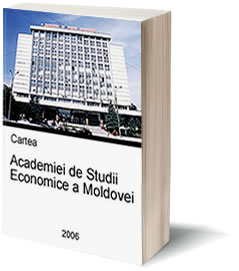
Table of contents:
AESM AND THE BOLOGNA PROCESS
In 1998, a joint declaration on harmonization of the European higher education system was signed at Sorbonne by the Ministers for Education of the participating countries, who have affirmed their support to converge the structure of higher education. The diversity of degrees granted by universities is considered an important obstacle in promoting academic mobility.
In 1999, the Ministers for Education of the European countries agreed to make decisions on the entire educational process, identifying the principles of what has ultimately been called “the European Area for Higher Education” (the Bologna Declaration), which along with other documents adopted later, constitute “the Bologna Process”.
Until present, 45 countries adhered to the Bologna Process. The Republic of Moldova has adhered to this Forum at the Bergen Conference, Norway (19-20 May 2005) and would also like to participate in the establishment of this area. Therefore, its higher education system should be adjusted to the European education standards.
The Academy of Economic Studies of Moldova has introduced the following modifications that positively influenced the educational process:
1. Beginning with the academic year 2005-2006, admission is made in compliance with the new Classified List of Fields and Domains / Specializations and a new cycle-based system of higher education, respectively, cycle I, Bachelor, lasting 3 years, which is equal to 180 transfer credits, and Cycle II, Master, lasting 2 years, which is equal to 120 transfer credits.
2. Beginning with the academic year 2002-2003, the European System of Accumulation and Transfer of Credits was implemented institution - wide.
3. Beginning with 2005 the Diploma Supplement is issued to every AESM graduate, free of charge, in Romanian and English, in order to comply with the European standards.
4. A self-governing student system, implemented at AESM, stipulates:
- A more active involvement of the group leaders in making decisions and organizing the educational process at the group level;
- The election of Faculty Student Councils;
- The election of the AESM Student Senate.
5. The AESM has begun to elaborate Student Guides for first year students, in order to provide relevant information on the length of study, the curriculum for the field of study chosen, the legislation in force, and services provided by the scientific library of AESM etc.
6. A new system of student knowledge assessment has been implemented and operates for many years at AESM. The general grade is calculated based on summative components, such as the results of tests taken during the semester, ongoing performances, and the final test (examination).
7. To improve the quality of studies, opinion polls are distributed periodically among students, and recently there has been implemented the teaching assessment procedure.
8. In the recent years, AESM has considerably expanded its cooperation within various international university networks.
Our future objectives are:
- to elaborate professional educational standards for new fields of professional development;
- to develop curricula for the Master programmes, cycle II;
- to create and implement an infrastructure to assure and further develop the quality of education;
- to prepare AESM for external accreditation by the European University Association (EUA), the European Association for Quality Assurance in Higher Education (ENQA), or other accreditation authority.


